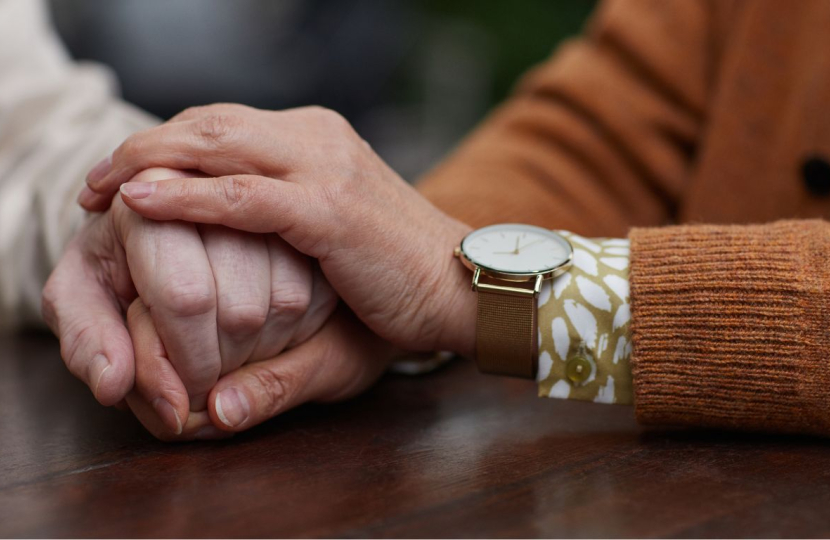
The Terminally Ill Adults (End of Life) Bill came before Parliament on November 29 for its Second Reading and was passed by 330 votes to 275.
This was the first chance for Members of Parliament to vote on the Bill after it was published recently. Since Kim Leadbeater MP first signalled her intent to use her Private Member's Bill allocation to raise this issue, I have received a vast amount of correspondence from South Shropshire residents. It is clear that there are large numbers of constituents on both sides of this debate, with a small majority of constituents opposing the Bill. I made the decision to vote against this Bill, and I want to provide constituents with some of my reasons.
I deeply believe in the sanctity of human life. It is the fundamental role of Government and our public services to protect human life from any threat or harm that may come to it. One of the great pillars of our democratic system is that this right extends to all people at all times. Life is equally valuable and precious. For this reason I think it wrong for any state to legalise the taking of life (outside clear exceptions of national security and law enforcement). To do so demonstrates that some lives, in the eyes of the state, are less worthwhile, less necessary of protection.
I have seen first-hand the pain of human suffering. I lost my Father at the age of 8 to cancer, and I am now supporting my Mother through her own battle with cancer and ongoing treatment. I know the pain that illness can bring and understand how many feel that giving people the right to assisted dying is a compassionate thing to do. I believe that while it may seem a compassionate course of action in isolated cases and examples, we must consider the purpose and effect of any law from the principles of democratic government and effect on the whole of society.
One of the most compelling reasons for me is the inevitable impact a law change will have on the most vulnerable. By enabling doctor-assisted dying, we give people who feel like a burden a choice to make. There is no possible way to implement proper safeguards to prevent this happening; the implied or underlying pressure that someone who is terminally ill may feel would be very hard to mitigate or address.
I also fear the potential consequences for access to assisted dying to be broadened. Once we have decided as a country that assisted dying for a particular reason is acceptable, it will be much harder to argue that other reasons are not also valid. I am incredibly saddened to hear accounts of children and those who are mentally unwell successfully applying for assisted dying in Europe.
The Bill before us today in Parliament has only come 18 days after being published. This is no good time to allow for proper legal and practical scrutiny, particularly as the first Private Member's Bill in a Parliament where a record number of MPs are new to the House. I am concerned about setting the wheels in motion on a Bill that has had such little airtime and will have limited opportunity for amendment when there are so many issues to address. I hope that we can improve the Bill at Committee, but I ultimately do not believe any proposal could protect those most vulnerable.
What this Bill has helped spark is the need to improve palliative care, and I will do all I can to ensure our local palliative care services are properly funded.
I want to again thank all the people who have got in touch in recent weeks. Each piece of correspondence has been immensely valuable. I hope that while many will not agree with where I stand on this Bill, we can respect each other's differences. It is a pleasure to be your Member of Parliament.




